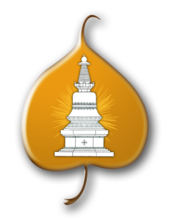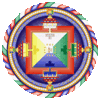How to be Happy: Tips from a Kadampa master's toolbox
Primary tabs
![]()
If you want to drive a nail, you reach into your toolbox for a hammer.
If you want to sew a seam, you reach into your sewing box for a needle.
And if you want to create a happy life, you reach into your spiritual toolbox for the Dharma.
In these teachings, Geshe Gelek will use topics from the Kadampa master Geshe Chekawa’s The Seven Point Mind Training as a tool for exploring methods of making our lives happier.
Upcoming topics: How to Practice Bodhicitta There are multiple points within this topic
The Kadampa masters were close disciples of Lama Atisha, who re-restablished Buddhism in Tibet some 800 years ago. They include Geshe Chekawa, Geshe Langri Tangpa, who composed The Eight Verses of Thought Transformation, Dromtönpa and Geshe Potowa.
Wisdom Publications writes:
The phrase "Kadam masters" evokes for many Tibetans a sense of a spiritual golden age--the image of a community of wise yet simple monks devoted to a life of mental cultivation. These 11th- and12th-century masters were particularly famed for their pithy spiritual sayings that captured essential teachings in digestible bites. In these sayings one unmistakably detects a clear understanding of what comprises a truly happy life, one that is grounded in a deep concern for the welfare of others.
Our Sunday morning teachings are a vibrant, interactive experience where we explore applying the methods of Buddhism to the nitty-gritty of daily life. With the guidance of one of our resident teachers, Geshe Gelek Chodha or Geshe Palden Sangpo, we discuss the complications that make us unhappy, and how the tools of Buddhism help us transform negative experiences by tweaking how we think about them. In this process we discover how to steer our minds toward happiness.
Sunday mornings typically begin with prayers, a brief meditation, and the rare opportunity to learn from a highly trained Buddhist monk. When Geshe Gelek and Geshe Sangpo are away, one of several senior students will lead the session. The teachings and prayers are in English.
Geshe-la welcomes questions and frequently will ask for questions from us, so that he can tailor his teachings to our needs. We collect questions at any time at the Center (there’s a box on the desk just inside the door for them), and you can also submit questions online.
Sunday is a great time for a first visit to Kadampa Center – students at every level come, from newcomers to practitioners with 30+ years of experience, and it's a great opportunity to meet others and start making new friends.
We offer a full range of children's programs on Sundays. Children are invited to sit on the blue cushions at the front of the gompa, and then depart to their classes after opening prayers. Any child who wishes to is welcome to remain in the gompa for the teachings.
On many Sundays, we also host other events, such as the Newcomer Q&A, New Member Orientation, pujas (prayer services), Sunday Tea, and more. Special events for holy days, special practices, or exhibits and visiting teachers are also occasionally held on Sundays, so for all these events please check the calendar for more information and specific times.



